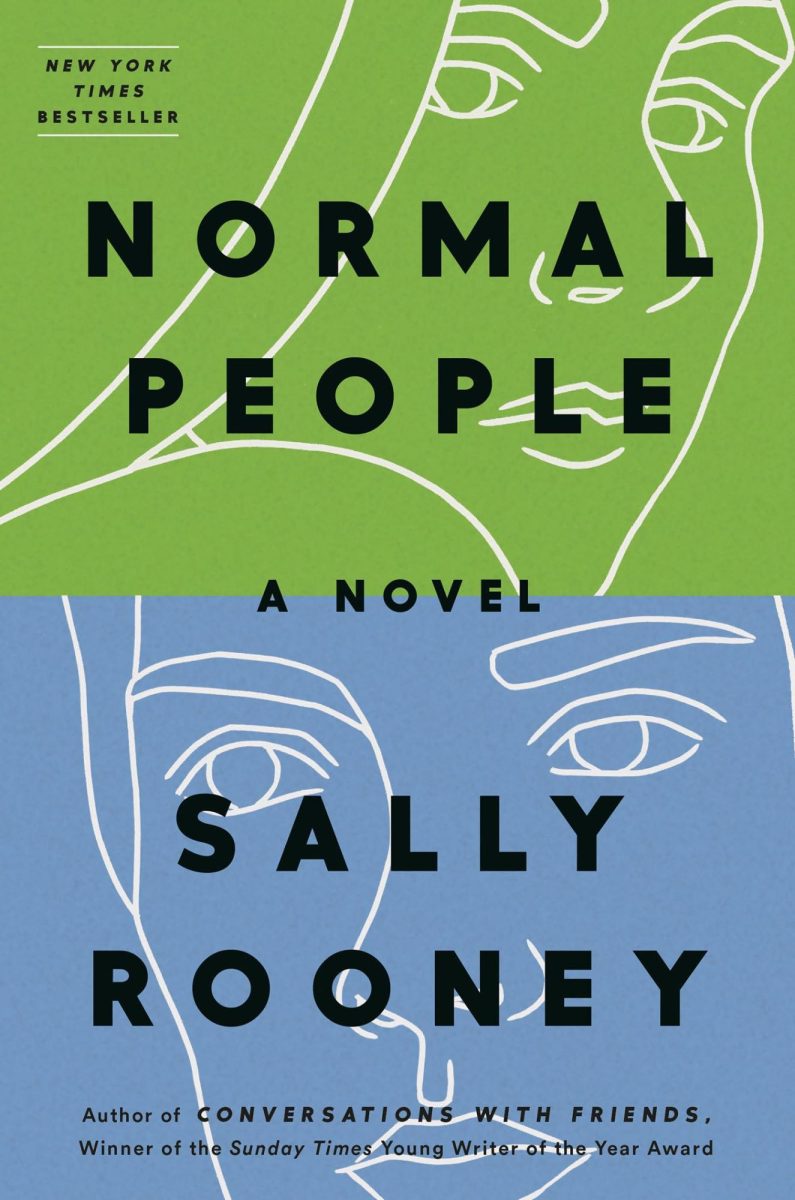Bello! The first and most obvious aspect of this book is the way it’s formatted which immediately commandeered our attention. The replacement of chapters with months as well as the lack of quotation marks is an interesting rhetorical choice that kept our attention and emphasized only the most important aspects of Connell and Marianne’s relationship. Though the lack of quotation marks proved to make it a painfully awkward book to read, this book delves into raw emotion that is found lacking in other books. Rooney doesn’t beat around the bush when it comes to topics like abuse, anxiety, and depression, which is why many people fail to understand the actual meaning behind the book. The imagery and raw presentation of the character’s lives independently from their relationship serves to acknowledge the kinks and mishaps between Marianne and Connell and their need for different aspects of comfort.
On the other hand, the book also has its pitfalls. For example the lack of quotation marks made it hard to read and follow along with. The writing style paints the characters as unlikable, repetitive, and just otherwise annoying. Marianne and Connell show no growth or development, their relationship lacked change and complexity, as shown with how they come back together without any growth or change. They repeat the same patterns which creates a disconnect between the reader and the characters. Another flaw of the book is the time skips; the reader doesn’t know what happens in those time skips, showing that Connell and Marieanne don’t exist separately from each other. This book also handles dark topics like Marianne’s drug addiction and abuse from boyfriends and family. Through these relationships Marianne is trapped in a cycle of abuse that strips her of agency and an escape.
Although the book Normal People is liked by many because of how the characters are represented, it fails to show character development and instead stays stagnant. The relationship of the main characters Connell and Marianne stayed the exact same from the time they were in high school to when they entered their college years. They cope with their already toxic relationship in even more destructive ways as they get older, failing to change and grow as people even during the time when they are apart. Their dialogue with one another is frankly hard to read as they have nothing interesting to say to one another because of how self-centered they are. They don’t mesh well together as people, and their relationship has the same energy as a bad fanfiction written by a middle schooler.
Overall, Normal People attacks difficult topics for a younger demographic but does not fully deliver on character complexity or growth. Readers should be aware that the relationships pictured should not be idealized and are the product of emotional and generational trauma.























